Dutch election: Voters choose stability as PM Mark Rutte wins landslide over populist Geert Wilders
Centre-right parties feast over historical defeat of Labour as Greens emerge as new political force.
Dutch Prime Minister Mark Rutte fought off the challenge of his far-right, anti-EU rival Geert Wilders by securing a landslide victory in the high-stakes general election on 15 March.
With all results counted, Rutte's Freedom and Democracy Party (VVD) won 33 out of 150 seats, while Wilders' anti-immigration Freedom Party (PVV) secured 20 seats.
As exit polls revealed that the VVD had won the most seats, Rutte declared that it was an "evening in which the Netherlands, after Brexit, after the American elections, said 'stop' to the wrong kind of populism."
Wilders, who was leading in the polls until a couple of weeks ago and was hoping to win 30 seats, said he was "disappointed" by the result but insisted that the "patriotic spring" would still happen.
"[In 2010] we were the third largest party of the Netherlands. Now we are the second largest party. Next time we will be number one," he said. The PVV gained five seats, but did not manage to surpass its record of winning 24 seats in 2010.
The Christian Democratic Alliance (CDA) and the progressive right-wing Democrats 66 (D66) were tied in third place, both winning 19 seats.
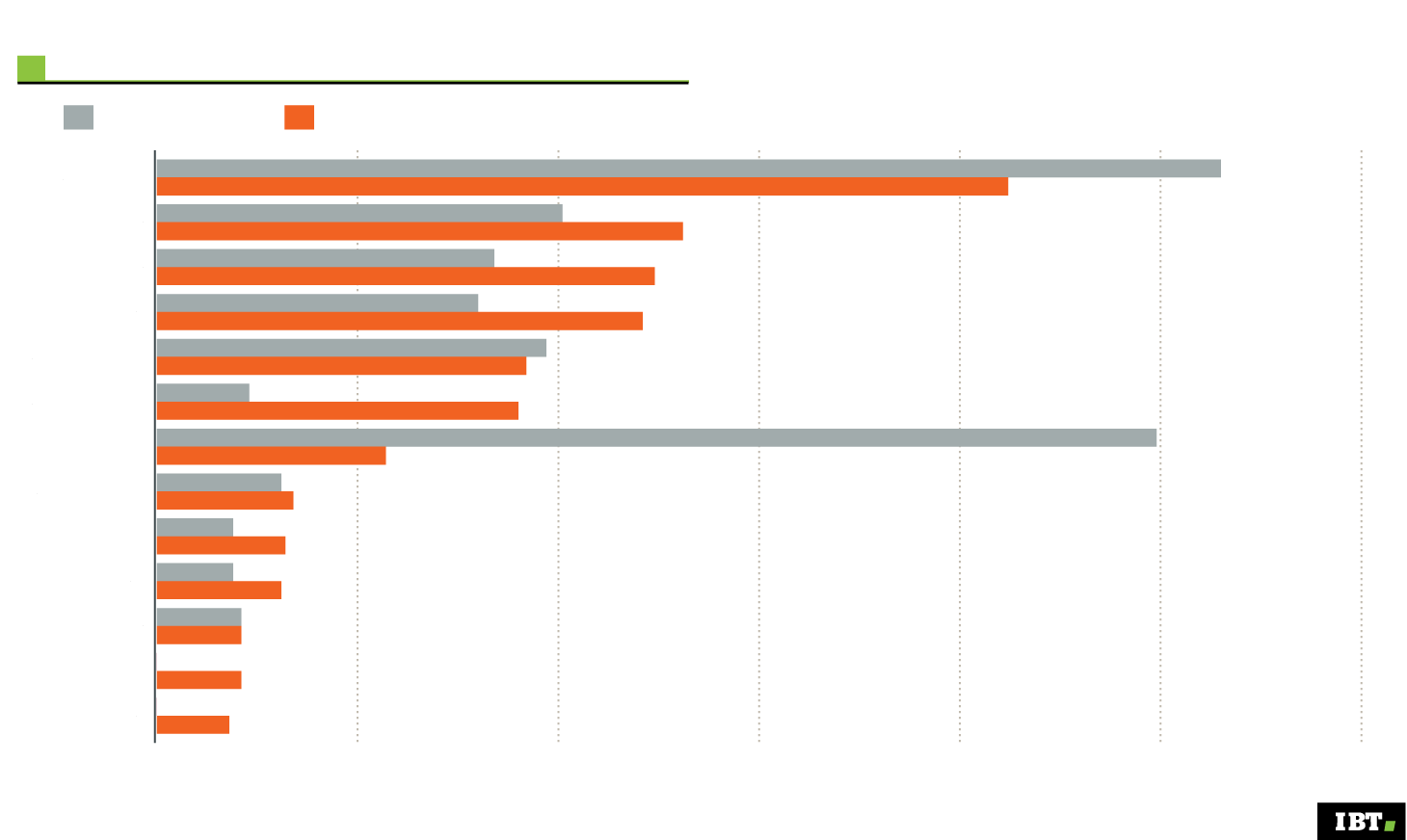
Dutch Elections: results
2012
2017
VVD
PVV
CDA
D66
SP
GL
PvdA
CU
PvdD
50
SGP
Denk
FvD
30%
0
5%
10%
15%
20%
25%
Source: NOS
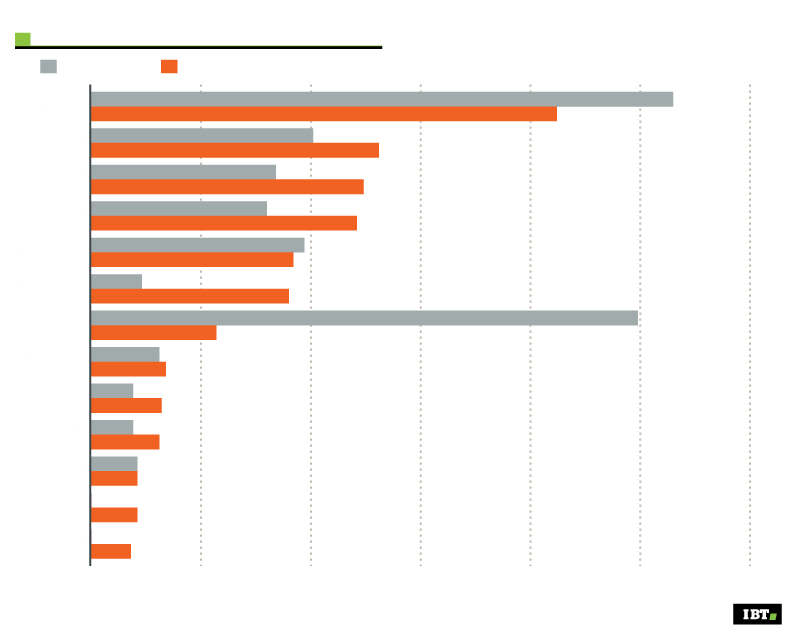
Dutch Elections: results
2012
2017
VVD
PVV
CDA
D66
SP
GL
PvdA
CU
PvdD
50
SGP
Denk
FvD
0
5%
10%
15%
20%
25%
30%
Source: NOS
While centre-right parties celebrated the election outcome, the Labour Party (PvdA) suffered a historic defeat. The VVD's current coalition partner lost 29 seats, falling far behind the other left-wing parties with only 9 seats.
The biggest winner of the night was Jesse Klaver's Green Party (Groenlinks, GL), which tripled their presence in Parliament winning 14 seats, the same number as the Socialist Party.
Highest turnout in 30 years
The election saw the highest voter turnout in 30 years, with 80.4% people casting their vote. This is significantly higher than in 2012, when the turnout was 74.6%. Several municipalities were unprepared for the unprecedented numbers. A number of polling stations had to direct people elsewhere to cast their vote as they did not have enough ballot slips and could not accommodate the large crowds. In Amsterdam, 25,000 extra voting ballots had to be printed as the number of voters exceeded expectations.
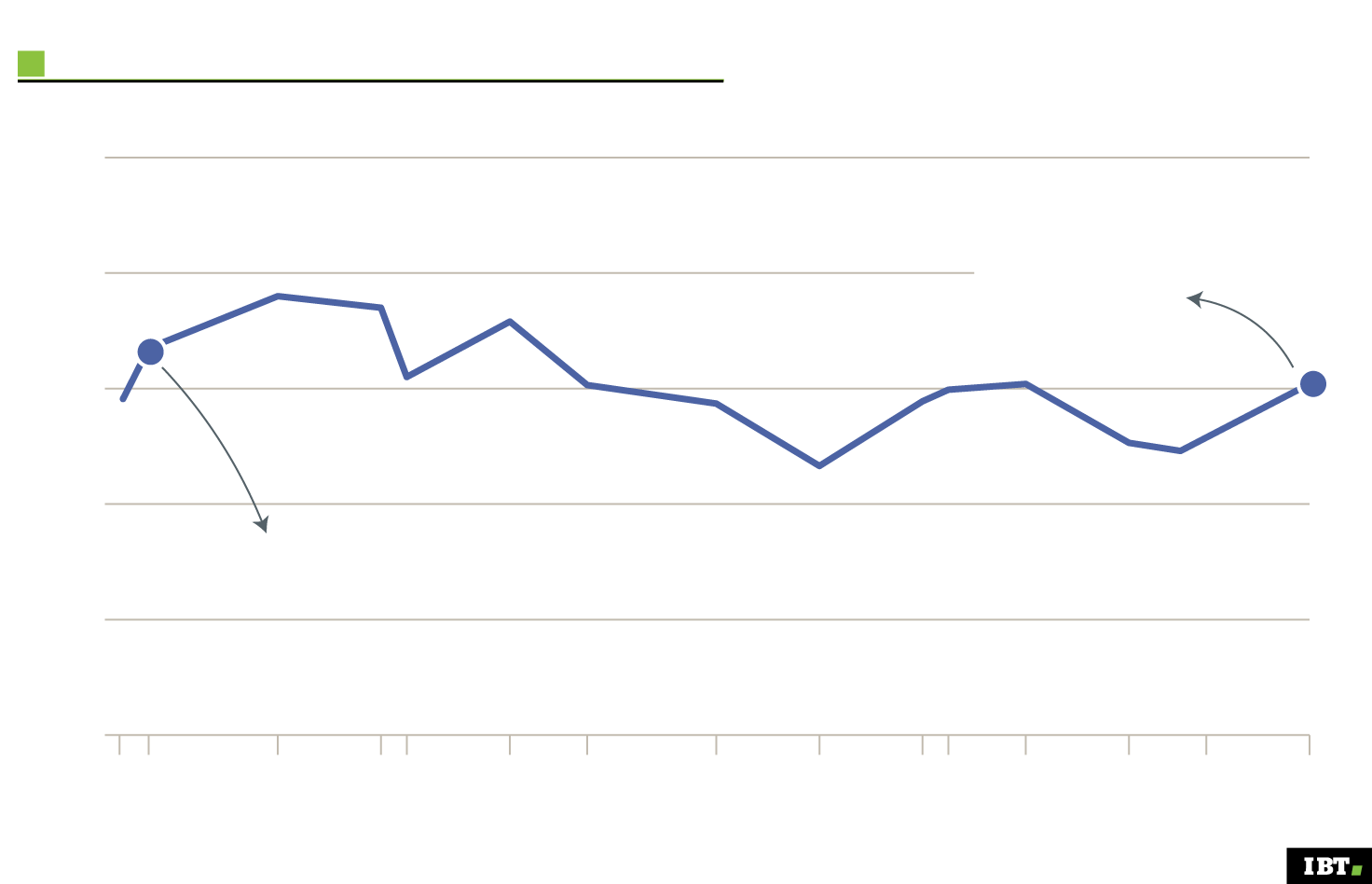
Dutch elections turnout
100%
Final turnout of
2017 elections:
80.4%
90%
80%
70%
From 1971, compulsory
voting is abolished in The Nertherlands
60%
50%
1986
2012
2017
1971/72
1977
1981/82
1989
1994
1998
2002/03
2006
2010
Source: Parliament.com
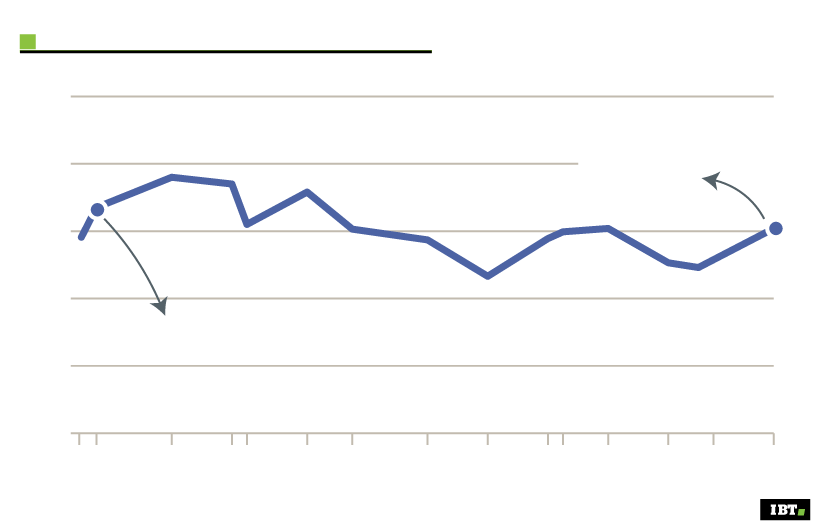
Dutch elections turnout
100%
Final turnout of
2017 elections:
80.4%
90%
80%
70%
From 1971, compulsory
voting is abolished in The Nertherlands
60%
50%
1986
2012
2017
1971/72
1977
1981/82
1989
1994
1998
2002/03
2006
2010
Source: Parliament.com
Some experts attributed the high turnout to the diplomatic row between Turkey and the Netherlands, others to people feeling motivated to vote to prevent Wilders from winning a majority of the seats. Voter turnout in The Netherlands has always been relatively high. Since compulsory voting was abolished in 1971, Dutch voter turnout has on average been around 75%, significantly higher than the European average of 68%.
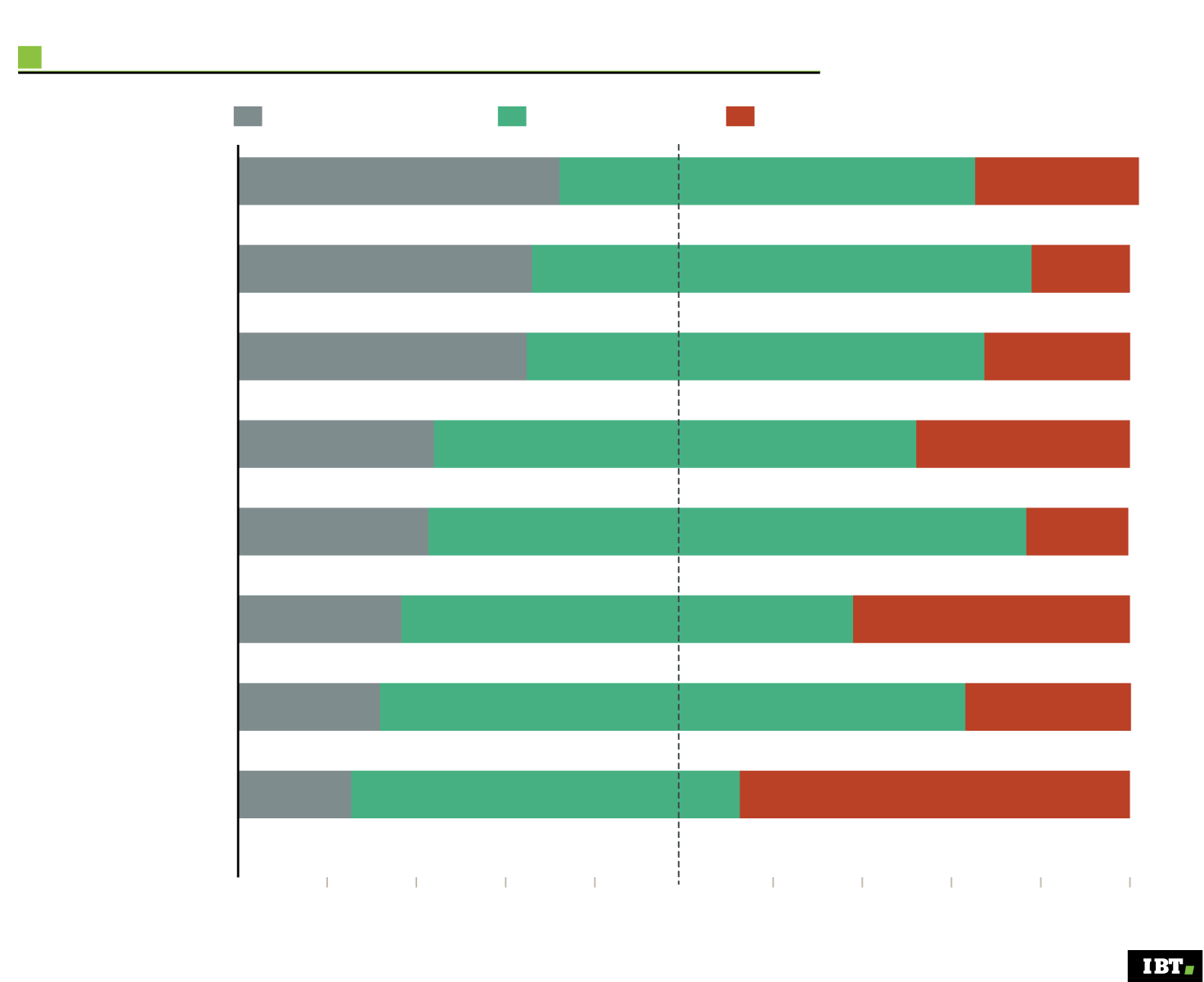
Vote preferences by age group
18-24 years old
35-64
64
GroenLinks
CU/SGP
D66
VVD
PVV
CDA
SP
PvdA
50%
0
10%
20%
30%
40%
60%
70%
80%
90%
100%
Source: IPSOS
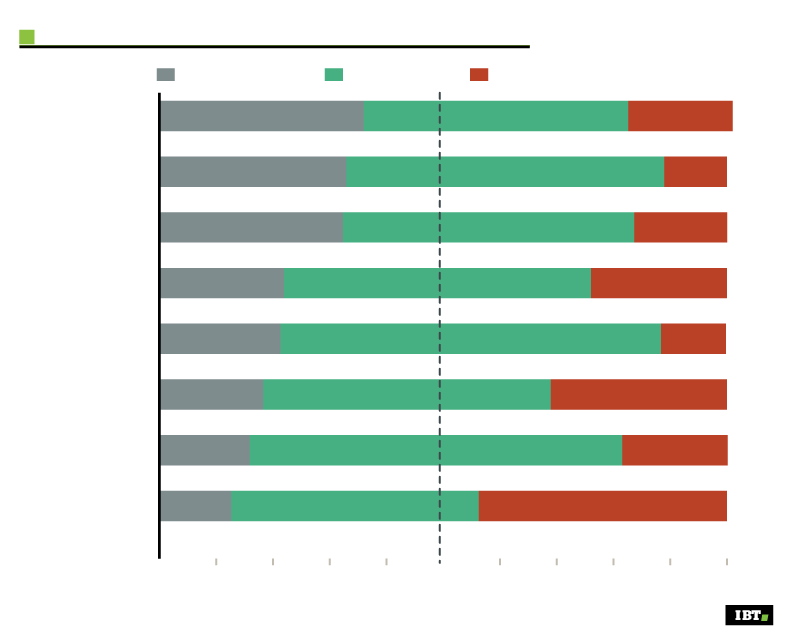
Vote preferences by age group
18-24 years old
35-64
64
GroenLinks
CU/SGP
D66
VVD
PVV
CDA
SP
PvdA
50%
0
10%
20%
30%
40%
60%
70%
80%
90%
100%
Source: IPSOS
The Green Party was most popular among young people, while 35 to 64-year-olds predominantly voted for the Freedom Party (PVV) and the Socialist Party. The Labour Party (PvdA) struggled to attract young voters, but did well among pensioners.
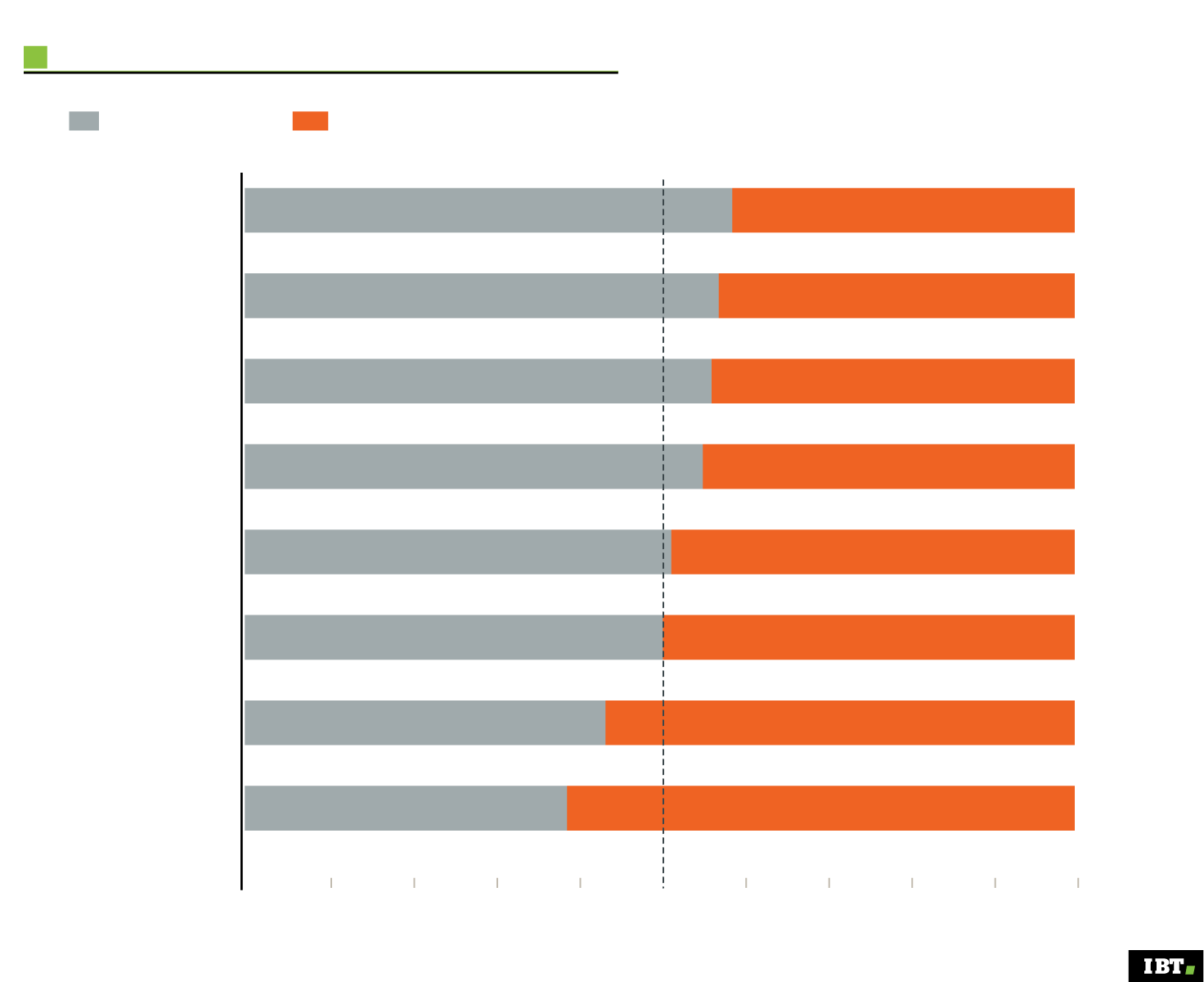
Vote preferences by gender
Male
Female
VVD
CDA
PvdA
PVV
SP
D66
CU/SGP
GroenLinks
0
50%
10%
20%
30%
40%
60%
70%
80%
90%
100%
Source: IPSOS
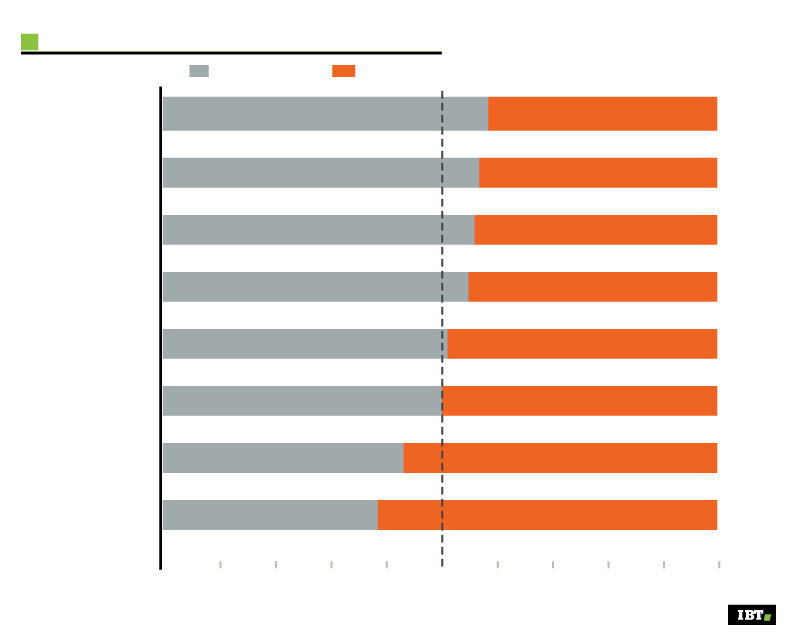
Vote preferences by gender
Male
Female
VVD
CDA
PvdA
PVV
SP
D66
CU/SGP
GroenLinks
0
50%
10%
20%
30%
40%
60%
70%
80%
90%
100%
Source: IPSOS
Among women the Greens did particularly well, perhaps because one of party's key election pledges was to ensure that 50% of the next cabinet members are women. Men didn't have a clear favourite, with votes almost evenly distributed among the VVD, PVV, CDA and PvdA.
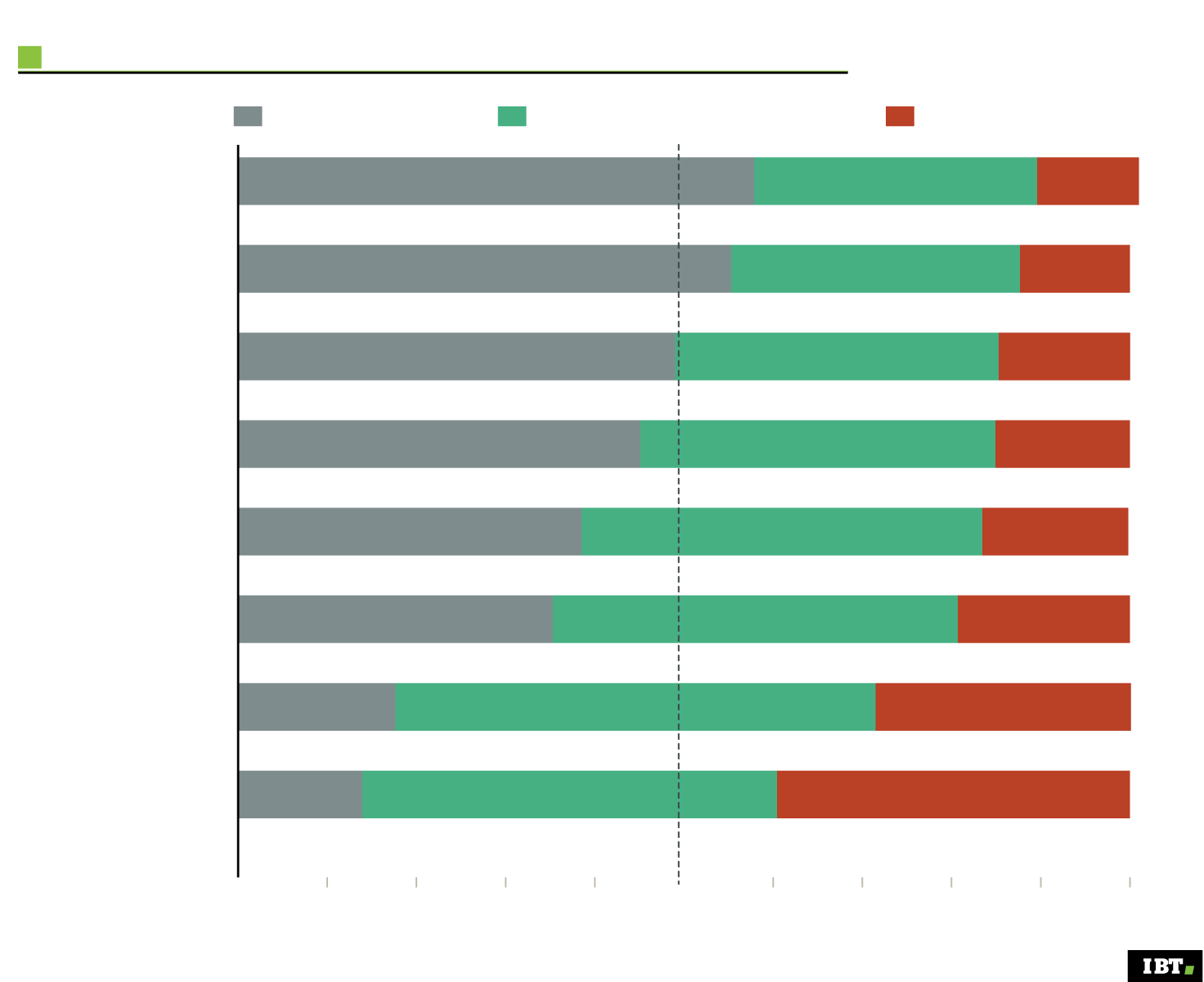
Vote preferences by education level
High education
Medium level of education
Low level of education
D66
GroenLinks
VDD
PvdA
CU/SGP
CDA
SP
PVV
50%
0
10%
20%
30%
40%
60%
70%
80%
90%
100%
Source: IPSOS
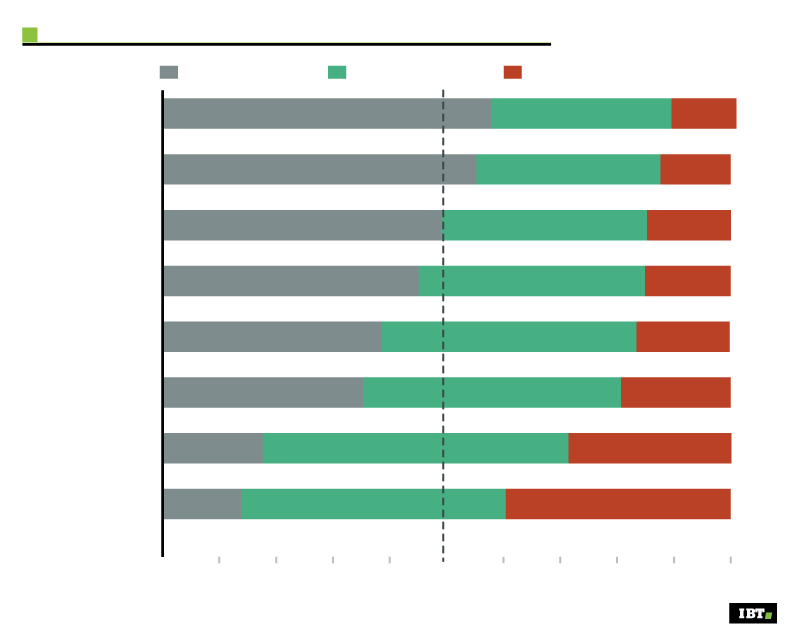
Vote preferences by education level
High Education
Middle Education
Low Education
D66
GroenLinks
VDD
PvdA
CU/SGP
CDA
SP
PVV
50%
0
10%
20%
30%
40%
60%
70%
80%
90%
100%
Source: IPSOS
D66 did best among students and university graduates, winning in the towns of Wageningen, Leiden, Delft, Utrecht and Groningen, which all host prestigious universities. This is not surprising as the centrist party promised to invest €1bn (£0.87bn, $1.07) in higher education every year and to guarantee free public transport for all students. The PVV was the most popular party among people who left school aged 16.
Who were the biggest winners and losers?
The Labour Party (PvdA) is the election's biggest loser. The loss of three quarters of their seats is a devastating defeat for the party, which has ruled as the minority partner in Rutte's coalition government for the past four years. The party's popularity has been waning for a long time. For the past two years, the party has polled below 10% of the preferences. Voters felt disillusioned with PvdA behaviour in government and punished deputy prime minister Lodewijk Asscher, who called for reform of EU freedom of movement in January, shortly after he was elected party leader.
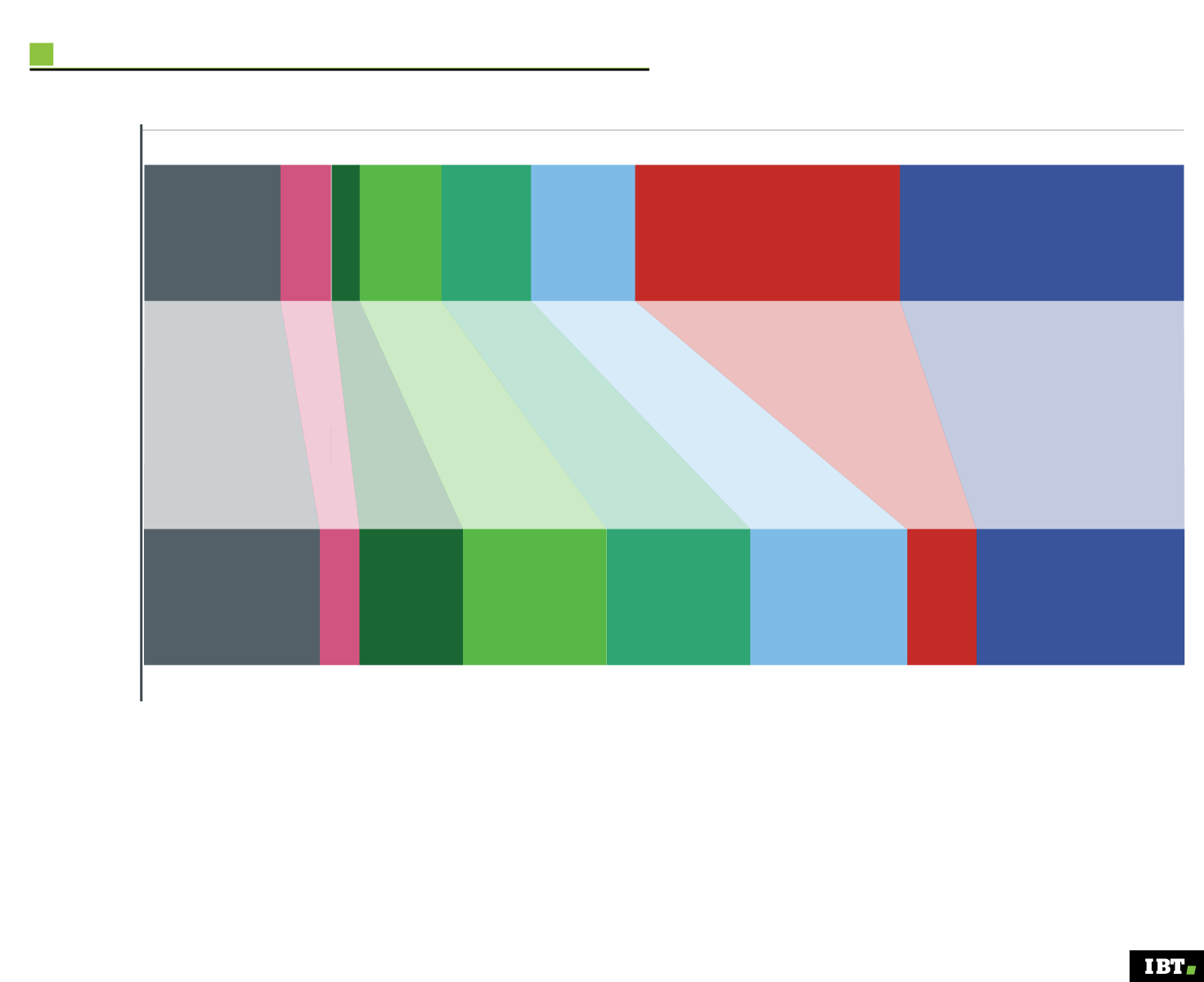
Changes in number of seats
0
100
150
50
2012
2017
Others*
SP
GL
D66
CDA
PVV
PvdA
VVD
14
seats
(-1)
14
seats
( 10)
19
seats
( 7)
19
seats
( 7)
20
seats
( 5)
9
seats
(-27)
33
seats
(-8)
22
seats
( 8)
*SGP, 50Plus, CU,
PvdD, Denk, VNL,
FVD, Pirate Party
Source: NOS
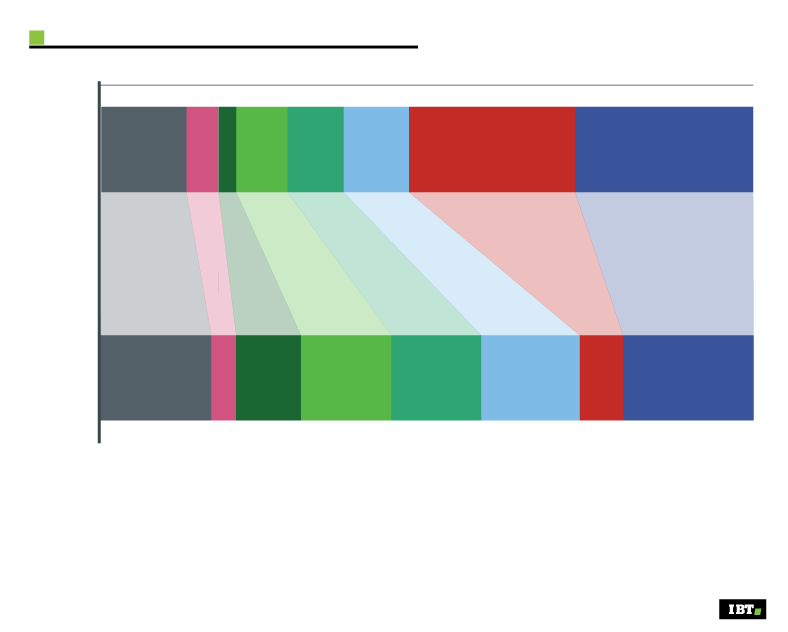
Changes in number of seats
0
50
100
150
2012
2017
Others*
SP
GL
PVV
PvdA
VVD
D66
CDA
22
seats
( 8)
14
seats
(-1)
14
seats
( 10)
19
seats
( 7)
19
seats
( 7)
20
seats
( 5)
9
seats
(-27)
33
seats
(-8)
*SGP, 50Plus, CU,
PvdD, Denk, VNL,
FVD, Pirate Party
Source: NOS
Asscher said the results were disappointing. "For those who voted for us: thank you for your trust! The result is a blow but the future of social democracy is worth the struggle," Asscher tweeted to his supporters following the exit polls.
The Socialist Party (SP) also lost a seat despite campaign efforts to position themselves as the PvdA alternative. The only remarkable victory for the Dutch left is the success of the Green party.
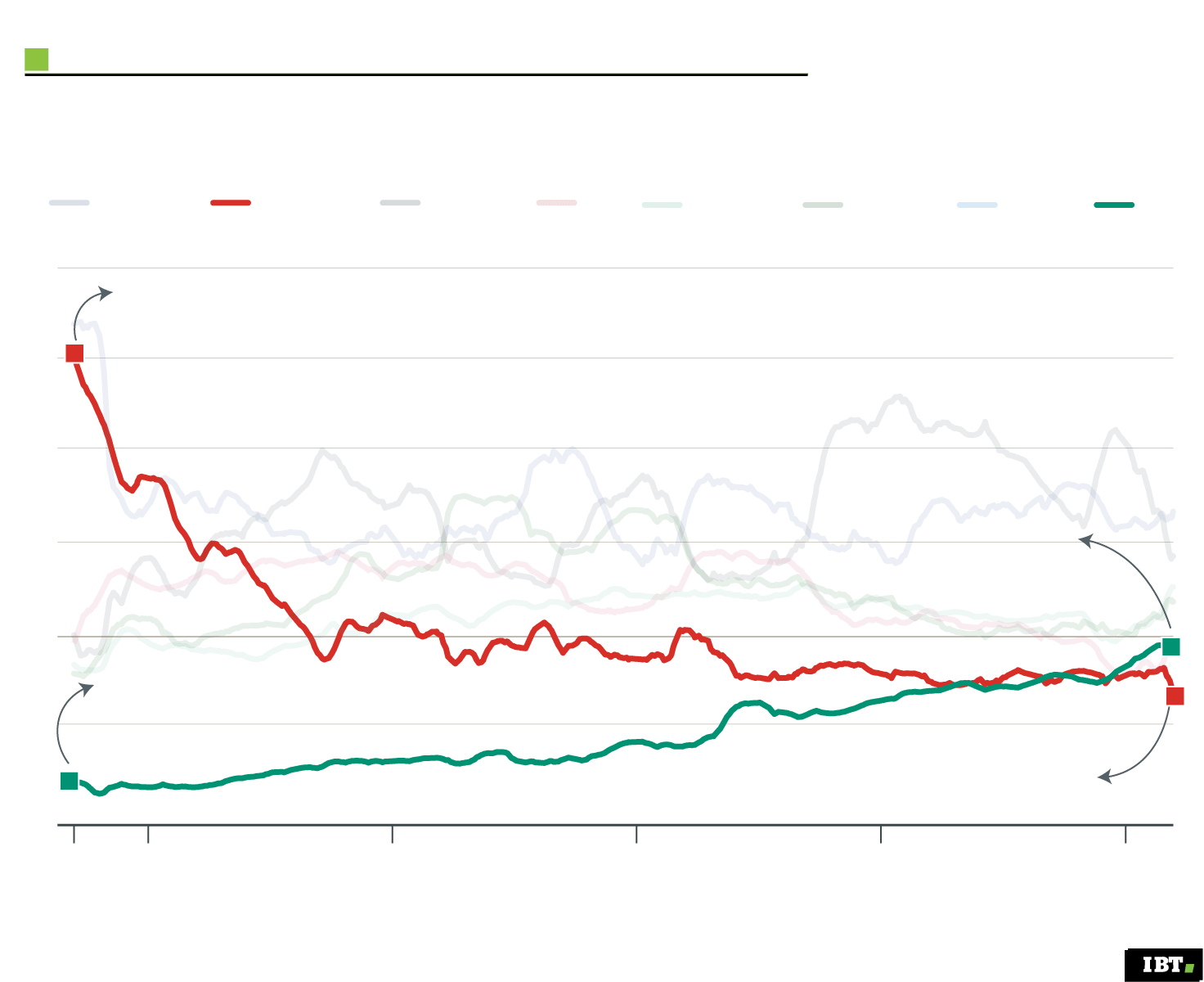
GroenLinks and PvdA support
The two parties are the real surprise of the 2017 Elections: PvdA - the Labour
Party - loses most of its seats, while the Green Party achieves an historic result.
VVD
PvdA
PVV
SP
CDA
D66
CU
GL
30%
PvdA 2012 results:
24.8% - 38 seats
20%
Green Party 2017 results:
8.9% - 14 seats
10%
Green Party 2012 results:
2.3% - 4 seats
PvdA 2017 results:
5.7% - 9 seats
0
Sept
2012
2014
2015
2016
2017
2013
Source: NOS
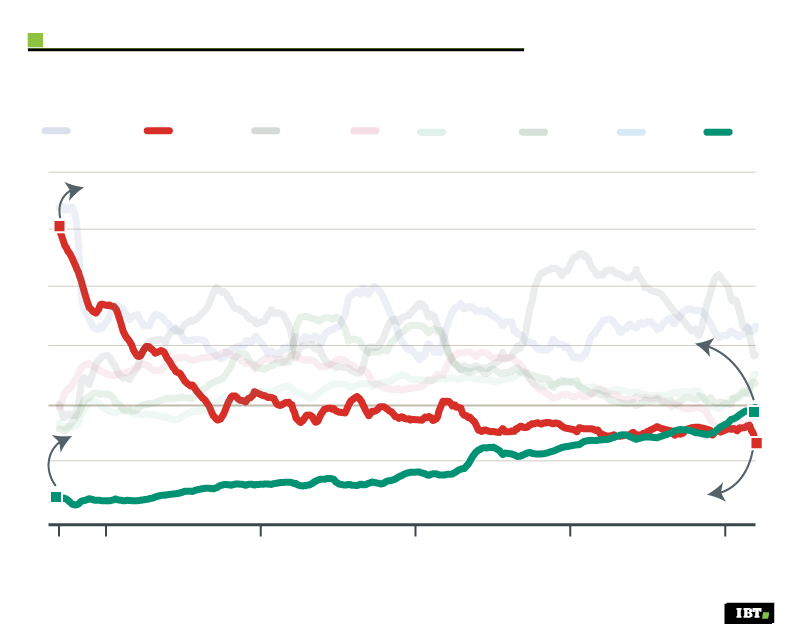
GroenLinks and PvdA support
The two parties are the real surprise of the 2017 Elections: PvdA - the Labour
Party - loses most of its seats, while the Green Party achieves an historic result.
VVD
PvdA
PVV
SP
CDA
D66
CU
GL
30%
PvdA 2012 results:
24.8% - 38 seats
20%
Green Party 2017 results:
8.9% - 14 seats
10%
Green Party 2012 results:
2.3% - 4 seats
PvdA 2017 results:
5.7% - 9 seats
0
Sept
2012
2014
2015
2016
2017
2013
Source: NOS
The Greens has been the only party that has significantly increased its popularity throughout the past four years, steadily rising as support for Labour was falling. Extremely popular among young people, women and first-time voters, the Greens conquered Holland's biggest city, Amsterdam, a traditional Labour Party stronghold, and the town of Nijmegen, where polling stations experienced a ballot shortage due to the strong turnout, and they may become the fourth partner in the government coalition.
Who is Jesse Klaver?
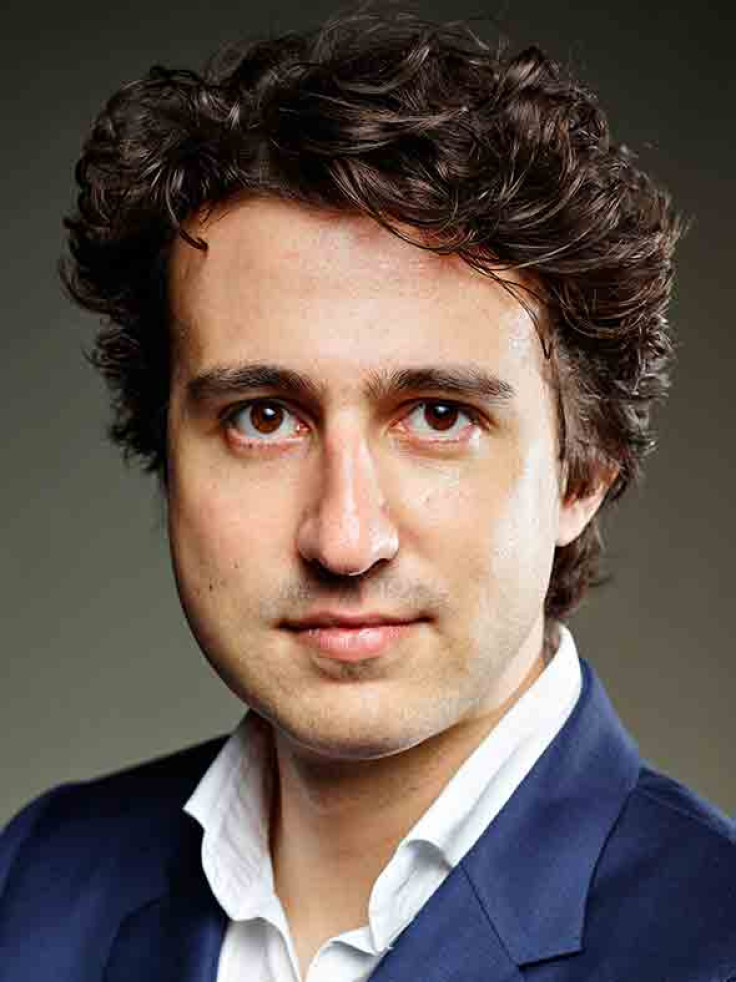
The young face of Dutch politics, 30-year-old Jesse Klaver has driven the Greens to their best result in the country's parliamentary election to date. He has been involved in the party's politics for over a decade, first as a board member for the Green party youth organisation Dwars and from there rising through the ranks.
Often compared to Canadian Prime Minister Justin Trudeau due to his curly brown hair and youthful look, Klaver's success among young voters is not unlike that of former British Labour leader Ed Miliband. Inspired by former US President Barack Obama, Klaver galvanised supporters around the idea of progressive change for the Netherlands, and building a "cleaner, fairer, more empathetic" country to counter Wilders' populism.
In an interview with Reuters, he said his party would increase spending on renewable energy and address social problems that have led 40 percent of people from ethnic minority background to feel unwelcome.
Messages of support for Klaver often feature the clover emoji, as that is what his surname means in English. He took his mother's surname as his father was not around during his childhood, but his background is Moroccan and Indonesian. He is married to Jolein, who he has known since childhood, and has two young children.
A portion of the votes lost by the mainstream party has benefited smaller parties. While the two Christian parties, the left-leaning CU and the conservative SGP, have retained their 5 seats, the 50plus party, which caters itself to the needs of the over 50 population, has doubled its seats from 2 to 4 and the Party for the Animals (PvdD) won a total 5 seats, its best result to date.
The only party in Parliament led by a woman, Marianne Thieme, PvdD has managed to position itself away from the image of a single-issue party preoccupied with animal rights, and expanded to a progressive platform that embraces social issues, environmental rights and women, LGBT and minorities rights. The message was evident in one of the party's posters, featuring Thieme reinventing herself as a female Che Guevara armed with carrots instead of bullets.
Internationale vrouwendag 2017 pic.twitter.com/W575S87iNP
— Marianne Thieme (@mariannethieme) March 8, 2017
Two new parties will hold seats in Parliament. Technically already present in Parliament, as it was formed by two former members of the PvdA, Denk increases its presence with three seats to continue their anti-discrimination platform.
The anti-establishment and populist Forum for Democracy has secured two seats. Supported by nationalist fringes of the Dutch academia, party leader Thierry Henri Phillipe Baudet believes in controlling the borders and is strongly anti-EU, having led the campaign for the successful referendum against the EU free trade deal with Ukraine.
What happens next?
In the next week the House of Representatives will hold a debate about the outcome. At the debate an informateur is chosen to review which coalition of political parties could form a viable cabinet. The role is generally filled by a representative from the winning party. After the informateur has presented the findings, a formateur, usually the new prime minister, negotiates the final coalition agreement.
The formation process can take a long time. Since 1977 it has taken an average 86 days for each of the 13 cabinets to be formed.
The new coalition will most certainly be made up of four parties and the formation is expected to take several months at least.
Which coalition is most likely?
The next government will be formed by a coalition of at least four parties. The partnership between the VVD and the Christian-Democrat CDA is virtually assured, as the two have governed together before and largely share the same prerogatives, particularly regarding fighting crime and immigration. The third coalition party is likely to be the D66, comparable to the British Liberal Democrats in terms of policies and beliefs. These three parties together are just a few seats short of a majority, but according to think tank ProDemos director Eddy Habben Jansen, it is unlikely they will rule in a minority government.
"They will absolutely try to form a government coalition," he told IBTimes UK, adding that the most likely options for the fourth partners are the Christian Union or the Greens. "D66 will have a strong preference for the Greens participating in the government and Klaver said he is ready to start government negotiations."

76
50
0
100
150
70
Possible
Centre-right
coalition
GL
CU
or
5 seats
14 seats
VVD
CDA
D66
33 seats
19 seats
19 seats
Source: NOS

76
0
50
100
150
70
Possible
Centre-right
coalition
CU
GL
or
5 seats
14 seats
VVD
CDA
D66
33 seats
19 seats
19 seats
Source: NOS
The parties will have to find balance and consensus on their diverging priorities regarding healthcare reform, education, climate change and renewable energy, fighting crime and immigration. Negotiations are expected to take a long time, at least three months, as the two-month negotiations between the VVD and PvdA in 2012 were criticised for being too quick. "People will take their time to thoroughly conduct negotiations and write a solid government programme without taking risks," said Jansen.
Incumbent Prime Minister Rutte looks to form his third cabinet and to complete the full term. Doing otherwise, said Jansen, would be very unusual and as Rutte's slogan throughout the campaign was "be sensible" ("Doe normaal" in Dutch), voters will expect him to follow through with his words.
"A clear victory against extremism"
Rutte's victory was celebrated by German Chancellor Angela Merkel and French President Francois Hollande who are both facing a far-right populist challenge in general elections this year.
Merkel congratulated Rutte: "I was very happy that a high turnout led to a very pro-European result, a clear signal," she said. Her chief of staff Peter Altmaier wrote an ecstatic Tweet following the victory announcement, quoting a Dutch football chant: "The Netherlands, oh the Netherlands you are a champion! We love the House of Orange for the way they act! Congratulations on this great result."
President Hollande said Rutte had won a "clear victory against extremism." In the French election at the end of April, anti-EU and anti-immigration politician Marine Le Pen will face off against centrist Emmanuel Macron. Le Pen's National Front Party heralded the seats gained by Wilders as a "real success."
Jean-Claude Juncker, President of the European Commission, hailed the outcome as a victory for "free and tolerant societies in a prosperous Europe" and said he looked forward to "building a strong Europe" together.
© Copyright IBTimes 2024. All rights reserved.






